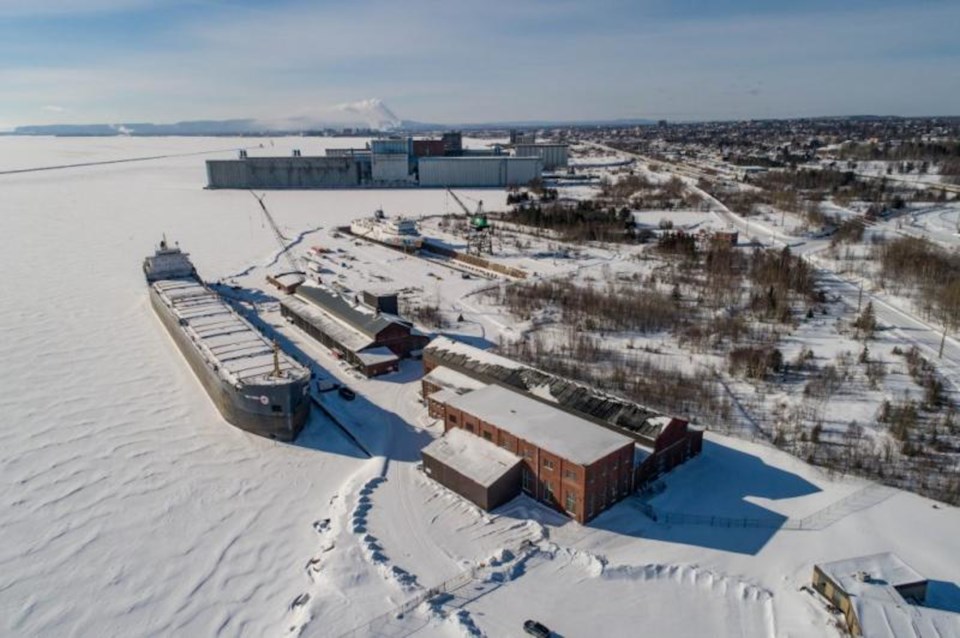For the first time in a long time, a Thunder Bay shipyard is back to fabricating ship components.
On its social media feed, Heddle Shipyards recently noted that structural ship modules were being manufactured in the fabrication shop at its Thunder Bay facility for the first time in more than two decades.
These aren’t pieces for a new ship that’s under construction but are part of a “critical repair project” for an existing ship that’s will be shipped back to a site for installation.
Ted Kirkpatrick, Heddle’s director of business development, declined to name the client or the ship, but said the Thunder Bay shop is fabricating a new section of the vessel’s hull.
“It is a repair job, significant enough that we’re rebuilding sections of the vessel.
“It’s been a few months (of work) for us, which is great,” Kirkpatrick said. “We’re building something there again, which is cool.”
Heddle is the largest ship repair and construction company on the Canadian side of the Great Lakes. It runs shipyards in its home port of Hamilton, in Port Weller on the Welland Canal, and in Thunder Bay on the western side of Lake Superior. The company acquired the former Lakehead Marine property and its dry dock in 2016.
To build up its skilled labour force in Thunder Bay, Heddle acquired Fabmar Metals, a local machine and marine repair shop, last year.
With a workforce of 25 to 30, Kirkpatrick said the Fabmar crew is in the process of moving equipment to the Heddle yard on the north end of the city. Improvements are being made to upgrade electrical systems and renovate other areas of the shop and office.
“On this particular project, it’s allowed us to grow our workforce a bit and build capacity, especially on our fabrication side. From that standpoint, it’s been real exciting.
“As that operation grows and we do more work out of Thunder Bay, we’ll continuously work to bring those facilities back up to where we think they should be.”
The shipyard has handled repairs for ships laying up for the winter in Thunder Bay when the shipping season ends. Kirkpatrick said other repair jobs are coming up with drydocking small tugs and the company is scheduling other upcoming winter work. The Fabmar team, on its own, has a long history of also working the industrial manufacturing side in mining and paper mills in northwestern Ontario.
A marketing tag that Heddle has been using on social media is: We are bringing shipbuilding back in Ontario.
That sentiment seems to be in full swing on the American side of the Great Lakes where the Interlake Steamship Company of Ohio recently brought into service the first freighter built on the Great Lakes in 40 years.
However, ships of that size and scale are not on the horizon for Heddle, Kirkpatrick said.
Their niche will be in building smaller ships, he said, in throwing support behind the federal government’s shipbuilding program for vessels under 1,000 gross tonnes, those along the lengths of 30 to 50 metres.
Canadian shipping companies operating on the lakes are having new vessels built in Asian shipyards.
“We don’t see a huge uptick in domestic commercial vessel production, especially in the size of the Great Lakes-Seaway carriers,” Kirkpatrick said, “but we see significant opportunity with the coast guard and navy in the small vessel fleet.”
Kirkpatrick said Heddle is currently building a cable ferry for the Ontario Ministry of Transportation, which he called a “great step in the right direction.”
But he said that doesn’t preclude them from taking part in larger ship projects.
Heddle has a partnership arrangement with Vancouver ship builder Seaspan to take on some work in the 10-year build of a new coast guard polar-class icebreaker. The details of how much work could be parsed out to Thunder Bay is still to be undetermined since the design phrase is still underway.
Thunder Bay yard will “absolutely” get a piece of that work, Kirkpatrick said, as all three yards will have a role to play.
Heddle’s big-picture role on that contract will likely be in fabricating modules for engine rooms and tertiary components like ladders and handrails, the latter being work the Fabmar team is familiar with, he said.
With Seaspan located in Vancouver, he said, the Thunder Bay facility is geographically well positioned to take on that work.




.jpeg;w=120;h=80;mode=crop)